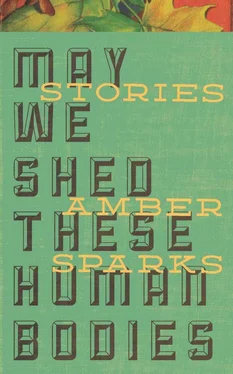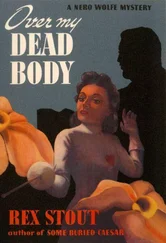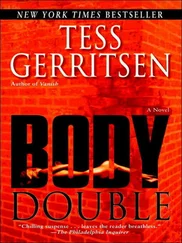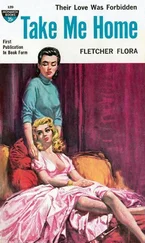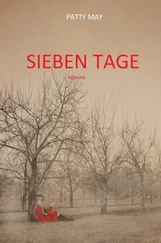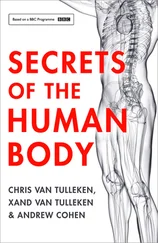Amber Sparks - May We Shed These Human Bodies
Здесь есть возможность читать онлайн «Amber Sparks - May We Shed These Human Bodies» весь текст электронной книги совершенно бесплатно (целиком полную версию без сокращений). В некоторых случаях можно слушать аудио, скачать через торрент в формате fb2 и присутствует краткое содержание. Год выпуска: 2012, Издательство: Curbside Splendor Publishing Inc., Жанр: Современная проза, на английском языке. Описание произведения, (предисловие) а так же отзывы посетителей доступны на портале библиотеки ЛибКат.
- Название:May We Shed These Human Bodies
- Автор:
- Издательство:Curbside Splendor Publishing Inc.
- Жанр:
- Год:2012
- ISBN:нет данных
- Рейтинг книги:5 / 5. Голосов: 1
-
Избранное:Добавить в избранное
- Отзывы:
-
Ваша оценка:
- 100
- 1
- 2
- 3
- 4
- 5
May We Shed These Human Bodies: краткое содержание, описание и аннотация
Предлагаем к чтению аннотацию, описание, краткое содержание или предисловие (зависит от того, что написал сам автор книги «May We Shed These Human Bodies»). Если вы не нашли необходимую информацию о книге — напишите в комментариях, мы постараемся отыскать её.
May We Shed These Human Bodies peers through vast spaces and skies with the world's most powerful telescope to find humanity: wild and bright and hard as diamonds.
May We Shed These Human Bodies — читать онлайн бесплатно полную книгу (весь текст) целиком
Ниже представлен текст книги, разбитый по страницам. Система сохранения места последней прочитанной страницы, позволяет с удобством читать онлайн бесплатно книгу «May We Shed These Human Bodies», без необходимости каждый раз заново искать на чём Вы остановились. Поставьте закладку, и сможете в любой момент перейти на страницу, на которой закончили чтение.
Интервал:
Закладка:
He had never had any luck with women before. He was young, it was true, possessed of mild, inoffensive features and thick black hair. He was wealthy, too. But he was also very large. Profoundly fat, in fact. And that had kept him from the thoughts or arms of any nice young ladies; he had been forced to buy his embraces before that long winter began.
I never met my great-grandfather; he died of a heart attack long before I was born. But by all accounts he was not a wicked young man. He never attended his mother’s suffragette meetings with the sole purpose of seducing young ladies. He fell into his Don Juan role by accident and good fortune. He had long been dragged to those meetings by his overbearing mother, where he’d doted on many of the pretty young girls in attendance. And they’d never paid him any attention at all.
So one can understand why he might have been too eager to take advantage of this new miracle. When the prettiest of the girls, Hilda Stone, shared a sofa seat with him at a meeting and discovered the warmth radiating from his big bulky body, it all started so suddenly that he was quite overwhelmed. Certainly he had no intention of ruining the young women. Or, god forbid, of his terrifying mother finding out. He always had his driver get them home before anyone could discover they’d been out. But he didn’t really understand about women, and men, and babies — so the real miracle was that none of the women he’d wooed and warmed was carrying his.
Scientists promised the cold would end. But they fought bitterly about when, some saying six months, others guessing two or three years, or even a decade. And the public grew weary, diffident, as secret obsessions began to take over civilized lives.
People began to inhabit their homes like mice, holed up in tiny corners, hiding from the cold and trying to remember where their passions lived. Intellectuals wrote books about desert climates, and polar exploration finally lost the last of its charm. Oasis Parties became popular among the very wealthy, who would build up immense fires in pits for guests to dance around, while wearing wild costumes and drinking absinthe. More often than not, these parties ended in orgies or house fires. Sometimes both. People were starting to lose their minds a little.
No one knows why my great-grandmother started attending suffragette meetings. I like to imagine a sort of frequency opened in my great-grandmother’s mind at that moment. Feeds flying in from Ancient Greece, the Renaissance, the Enlightenment — all the knowledge of the human world tangled up in it, ready to be snatched up and studied. Backs of giants patiently waiting to serve as step stools.
Anyhow, the historical fact remains, and who can say why: my great-grandmother became, briefly, a suffragette. She was a bit of a local celebrity in the city, and added prestige to the Washington Square Suffrage Society. She was an actress who smoked cigarettes, drank whiskey, and often wore men’s tweed trousers. She was a woman who did what she liked, and the suffragettes liked that about her.
At one of those meetings, my great-grandfather and my great-grandmother finally entered the same orbit. Like a magnet, the long weather could finally begin to do its work, exerting its pull on the two strangest branches of my family tree.
My great-grandmother found herself seated next to my great-grandfather. She could feel the heat radiating from him, strong and bright, could smell him — mild hints of animal fat and cheese, lye soap. She shuddered to think of breathing it in deeply; she hated the smell of people. Still, the heat he gave off was the heat she constantly longed for, everywhere she went, even in her sleep, even in her dreams.
He smiled at her, and took her hand to kiss it. She had heard some of the other girls talking about him. She had not believed it. But now she knew the snow was piling up outside, dirty and foul, and her ankles would sink into it and her leather shoes would soak up the water, and her feet would ache with cold until she could sit in front of the kitchen stove with her stockings off. She smiled back at him, a finer actress than she had ever been on stage, desperate for a little fire.
There were no Oasis Parties or any other scandalous goings-on at my great-grandfather's house. It was a Respectable House, and his mother made sure it stayed that way. She had the servants put out the gas lamps at precisely nine o’clock every night to save fuel. She was a very practical woman, and besides, she believed it was unhealthy to stay up late. All decent, God-fearing people are asleep by dark and up by dawn, she would say, never an original woman. The fact that it was dim all of the time and dark by dinner did not alter her arrangements in the slightest. At precisely nine, she would say goodnight to her son, climb the staircase, and retire to her room. My great-grandfather would usually do the same.
On one especially cold night, my great-grandmother was waiting for him. She had leaves in her black hair from climbing the trellis, and a scrape on her cheek where a vine had brushed her skin. He recognized her from the meetings, and didn’t wonder at what she wanted. It was plainly written in her shivering frame, in her wild eyes.
His hands were warm as he held hers, and his cheeks were red, and she, who had never known love, never loved anyone but had stood apart, cool and calm — she allowed him to envelope her, to pool around her and inside of her and fill her with light and flame and familiarity. And she fell in love with warmth itself, instantly addicted as if warmth were an opiate, fell in love with the appassionata of his body heat played out against her paper-thin white skin.
Food prices soared and farmers starved, surrounded by their frozen fields. Those in tenements were still dying by the thousands, including those who didn’t freeze or expire from hunger but killed themselves hoping for the fires of hell. Some blamed the suffragists, called them New Eves, convinced God was punishing man for the vanity of woman. Some blamed the Catholics; some, the Jews. Faith reversed itself, cults sprung up around Prometheus and Ra, and few believed in the priests.
No one believed in the scientists. No one thought it would end.
One night, my great-grandmother slept in her own bed, a hot water bottle at her feet. The warmth was feeble, barely reaching her ankles before dying out. She shivered and thought of my great-grandfather, of his oppressive but necessary heat. The currency of cellulite. And she knew she would have to go back again, to that house, to him — because she had fallen in love with warmth itself.
And so it finally came to be: my great-grandmother changed her life forever, trading solitude for a chance to swim in the sun.
Poor Great-Grandfather. He certainly thought he loved her, but he was also terribly afraid she would leave him. She almost never spoke to him. She just seemed to want him near, especially in the dark, especially in the cold, when the fire had gone out and each of his heartbeats signaled the only warmth in the room.
At times she clung to him, made him feel proud, made him feel certain he would never be alone again. But at other times, he would catch her watching him, and her stare would eat through him like ice water. Then, he felt certain that in the end, she would ruin him.
When he was gone, she would lock herself in the conservatory and play the piano for hours, or stay cocooned in her bed under piled-up furs. She ignored the servants and her disapproving new mother-in-law and became a ghost, a succubus living on warmth and music alone.
But only a few months after they married, the sky began to clear. Temperatures finally began to rise. And when they were high enough, my great-grandmother left my great-grandfather’s bed for good.
Читать дальшеИнтервал:
Закладка:
Похожие книги на «May We Shed These Human Bodies»
Представляем Вашему вниманию похожие книги на «May We Shed These Human Bodies» списком для выбора. Мы отобрали схожую по названию и смыслу литературу в надежде предоставить читателям больше вариантов отыскать новые, интересные, ещё непрочитанные произведения.
Обсуждение, отзывы о книге «May We Shed These Human Bodies» и просто собственные мнения читателей. Оставьте ваши комментарии, напишите, что Вы думаете о произведении, его смысле или главных героях. Укажите что конкретно понравилось, а что нет, и почему Вы так считаете.
